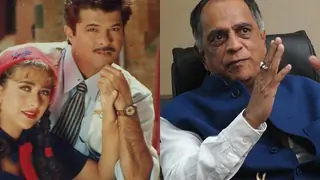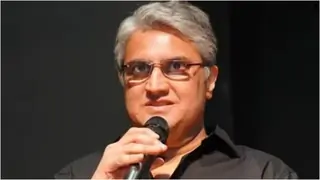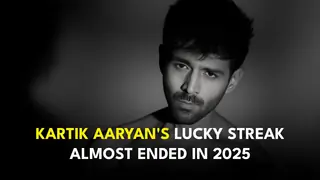Review: 'Emergency' will make you reminisce the school history class you could bunk or sleep in
For viewers expecting a gripping exploration of the Emergency period and the complexities of Indira Gandhi’s leadership, Emergency falls short, offering little more than a fragmented version of a history textbook.
Published: Friday,Jan 17, 2025 04:35 AM GMT-07:00

Lacking trust in any director, Kangana Ranaut decided to take full control of her film Emergency, serving as its director, producer, and lead actor. The film tackles a highly controversial chapter in Indian history, making Ranaut’s decision to helm the project herself even more significant. After undergoing all the necessary CBFC procedures, including cuts and edits, the film finally received approval for a theatrical release. Having watched it, here is my take on the film.
A Promising Start Falls Flat

The movie opens on an artistic note, with a younger Indira Gandhi gazing at a rose, symbolizing the political journey she inherited from her father, Jawaharlal Nehru. The thorn that pricks her finger and draws blood sets a metaphorical tone for the sacrifices and struggles of politics. However, this promising start quickly devolves into a fast-forwarded sequence of historical events.
In just an hour and a half, the film races through major milestones, from the late 1920s to the mid-1970s. Iconic events like the 1971 Indo-Pak war, the Pokhran nuclear test, and the imposition of Emergency are presented as isolated episodes with little context or emotional weight. Rather than providing a deeper understanding of the motivations behind Gandhi’s actions or the societal impact of the Emergency, the film offers a surface-level recounting of history. It leaves viewers confused and overwhelmed, questioning what just transpired.
Missed Opportunities for Depth

The title Emergency implies a focused exploration of one of India’s most debated political decisions. Yet, the film fails to delve into the complexity of the Emergency period. It glosses over the oppression faced by the poor, the political turmoil, and the internal conflicts that might have driven Indira Gandhi’s decisions. Instead, random historical events are strung together, leaving no room for nuanced storytelling.
The character of Sanjay Gandhi, played by Vishak Nair, is reduced to a caricature, presented merely as a troublemaker who drives his mother’s hunger for power. Similarly, the opposition, including prominent leaders like Jayaprakash Narayan (Anupam Kher) and Atal Bihari Vajpayee (Shreyas Talpade), is portrayed in a simplistic and often unconvincing manner.
The film also takes a bizarre turn into musical territory, with the cast breaking into songs and ballads during pivotal moments. These sequences feel jarring and out of place, detracting from the narrative.
The Technical Scenario

On the technical front, Emergency fares better. The production design is commendable, with well-crafted sets, costumes, and cinematography. Key moments, such as the Pokhran nuclear test, rallies, and parliamentary sessions, are visually striking and add authenticity to the period setting. However, these strengths are undermined by the film’s lackluster storytelling and emotional disconnect.
The film’s soundtrack, composed by G.V. Prakash Kumar and Arko, includes four songs that fail to leave a lasting impression. While the music is integrated into the narrative, it often feels out of place, further diminishing the impact of critical scenes.
The Performances and Direction

Kangana Ranaut’s portrayal of Indira Gandhi is a mixed bag. While she captures some aspects of the leader’s demeanor, her performance often feels overdone, veering into caricature. The balance between portraying power and vulnerability is missing, leaving viewers detached from her character.
As a director, Ranaut’s ambition is evident, but her execution falters. The film’s narrative lacks clarity and structure, and its pacing feels erratic. The supporting cast, including seasoned actors like Anupam Kher and Shreyas Talpade, is underutilized, with their characters lacking depth or significant roles in the story. Mahima Chaudhry as Pupul Jayakar adds some support to Indira’s character, but even her role feels limited. Milind Soman’s portrayal of Field Marshal Sam Manekshaw, complete with an unnecessary musical number, adds an unintentionally comedic element to the film.
The Verdict

Kangana Ranaut’s Emergency is a film with great ambition but flawed execution. While it touches upon significant historical events, it fails to provide a cohesive or emotionally engaging narrative. The rushed first half, tedious second half, lack of character depth, and misplaced musical interludes make it a disappointing watch.
Despite its impressive production values and a strong cast, the film ultimately feels like a shallow retelling of history. For viewers expecting a gripping exploration of the Emergency period and the complexities of Indira Gandhi’s leadership, Emergency falls short, offering little more than a fragmented version of a history textbook. It is a missed opportunity to delve into one of the most pivotal periods in Indian politics.
** 2/5 stars
Join Our WhatsApp Channel
Stay updated with the latest news, gossip, and hot discussions. Be a part of our WhatsApp family now!
Join NowYour reaction
 Nice
Nice Great
Great Loved
Loved LOL
LOL OMG
OMG Cry
Cry Fail
Fail























1 Comment